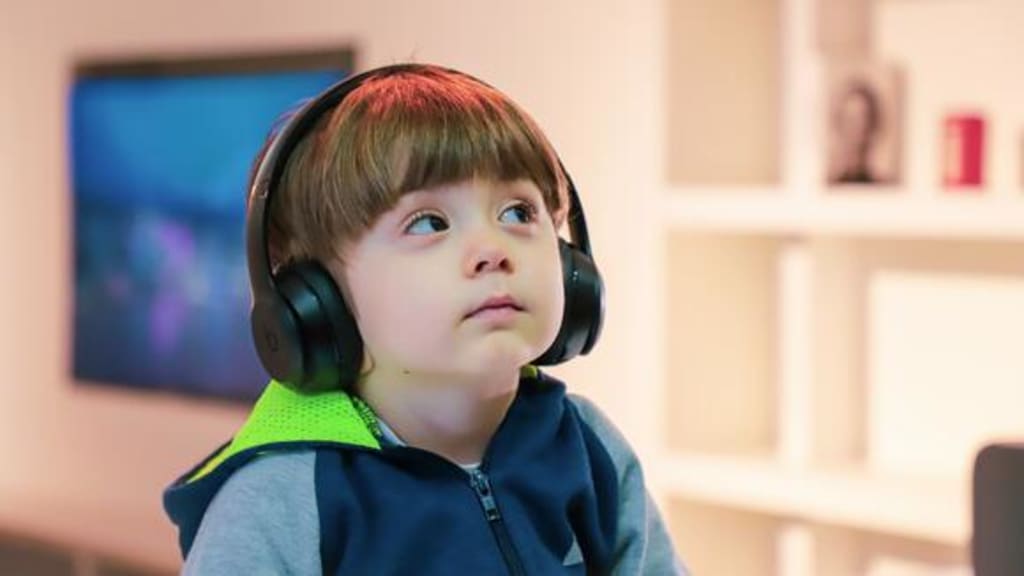Become a Master Listener
Develop a Listening Attitude

Becoming a master listener is essential for anyone who wants to develop communication skills and build strong relationships with others. Listening is not just about hearing what someone has to say but actively engaging in the conversation and understanding the message behind the words.
Master listeners can focus on what someone is saying and pick up on subtle cues that indicate how they feel. They can also ask relevant questions to probe further into the topic and provide meaningful feedback that shows they have taken the time to listen. With practice, anyone can become a master listener and use this skill to create stronger connections with those around them.
To become a master listener, you can follow five simple habits. First, develop a listening attitude. This means realizing the benefits of being an active listener and identifying and removing barriers to listening. Second, cultivate focus and concentration. This means practicing breathwork and grounding techniques, setting aside distraction-free listening time, and focusing on the present moment. Third, communicate respectfully and supportively by listening without interrupting and asking questions to clarify what is being said. Fourth, tune into nonverbal cues by recognizing the power of body language and acknowledging unspoken messages. Finally, embrace silence by honoring pauses and breaks in conversation and reflecting on the messages you receive. By following these simple steps, you can become a master listener!
Develop a Listening Attitude - Become a Master Listener
Listening is not only a critical communication skill; it also has numerous personal and professional benefits. When you actively listen, you can improve your relationships, better understand others, and resolve conflicts more effectively. You can also retain information more efficiently and perform better at work.
Identify and Remove Barriers to Listening
Many things can get in the way of hearing what another person is saying. If you want to become a master listener, it's essential to be aware of the common barriers to listening and take steps to remove them. Some common barriers include making assumptions, daydreaming, getting lost in your thoughts, multi-tasking, and interrupting others.
Cultivate Focus and Concentration
To be a master listener, it is essential to cultivate focus and concentration. This can be done by practicing breathwork and grounding techniques. Breathwork helps calm the nervous system and allows for more focused listening. Grounding techniques help anchor oneself in the present moment and help manage anxiety or intrusive thoughts.
Set Aside Distraction-Free Time to Listen
Another way to cultivate focus and concentration is to set aside distraction-free listening time. This means creating space in your day to give your full attention to the person or task. This may mean turning off your phone, closing your laptop, or stepping away from other distractions. It is essential to create this space if you want to truly listen and be present for what is being said.
Communicate Respectfully and Supportively
Interruptions are a common barrier to effective communication. When we interrupt, we send the message that we are not interested in what the other person has to say. We also miss out on important information. To become a better listener, make a conscious effort to avoid interrupting others.
If you find yourself interrupted frequently, there are a few things you can do to reduce the chances of it happening:
- Try to be aware of how often you interrupt others. This can be not easy, but being honest with yourself is essential. If you notice that you're interrupting more than you'd like, make a conscious effort to change your behavior.
- When someone else is talking, really listen to what they're saying. Please pay attention to their body language and tone of voice. This will help you pick up on cues that indicate when they're finished speaking.
Practice Patience and Self-Control
It can be challenging to hold your tongue when you're eager to jump in and share your thoughts, but respecting the speaker's right to finish their thoughts without interruption is essential.
Ask Questions to Clarify What Is Being Said
Another way to show that you're an engaged listener is by asking questions throughout the conversation. Asking questions shows that you're interested in learning more about the topic at hand, and it also allows you to clarify any points that may be unclear.
When asking questions, it's important to avoid being confrontational or challenging the speaker's authority on the subject matter. Instead, frame your questions in a way that shows genuine curiosity and a desire for understanding. For example, rather than saying, "That doesn't make sense," try saying, "Can you help me understand what you mean by that?" By doing this, you'll encourage open dialogue and prevent misunderstandings from occurring.
Tune Into Nonverbal Cues
Body language is an assertive communication that tells us much about someone's thinking or feeling. We can better understand what someone is trying to communicate by tuning into nonverbal cues.
We can look for several different types of body language cues. For example, facial expressions can give clues about how someone feels. If someone has a frown on their face, they may be angry or upset. If someone has a smile, they may be happy or amused. Attention to these cues can help us understand how someone feels and what they might be trying to communicate.
Eye contact is another important nonverbal cue to pay attention to. When we make eye contact with someone, it shows that we are interested in them and engaged in the conversation. On the other hand, avoiding eye contact can signal that we are not interested or not paying attention.
Another type of nonverbal cue is vocal tone. The way we say something can convey just as much meaning as the words themselves. For example, if we speak in a monotone voice, it may signal that we are bored or uninterested in the conversation. But if our voice is lively and animated, it may show that we are excited or passionate about what we're saying.
By paying attention to these and other nonverbal cues, we can better understand what someone is trying to communicate—even if they don't say anything.
Acknowledge Unspoken Messages
Sometimes, the most important messages are the ones that are left unsaid. By tuning into nonverbal cues, we can pick up on these unspoken messages and better understand what someone is thinking or feeling.
One way to do this is to pay attention to how someone is standing or sitting. If someone is hunched over, they may be feeling tense or anxious. If they are sitting up straight, they may be feeling confident or alert. Attention to these cues can help us understand how someone feels, even if they don't say anything.
We can also pick up on unspoken messages by the way someone is touching their face or body. If someone is rubbing their eyes or temples, they may feel tired or stressed. They may feel uncomfortable or threatened if they touch their neck or throat. Again, paying attention to these cues can help us understand what someone is thinking or feeling—even if they don't say anything.
Embrace Silence
Respecting pauses and breaks in conversation is a crucial part of being a master listener. Allowing yourself and the person you're speaking with time to reflect can help ensure that you're both on the same page and understand one another. It also allows each of you to gather your thoughts before responding.
Reflect on the Messages You Receive
After a conversation, take some time to reflect on what was said. This will help you better process the information and understand the points made. Additionally, it will allow you to consider how you might respond to or act on what you've heard.
Conclusion
To become a master listener, start by developing a listening attitude. Realize the benefits of active listening and identify barriers that get in the way. Then, cultivate focus and concentration by practicing breathwork and grounding techniques. Set aside distraction-free time to listen mindfully. When communicating with others, do so respectfully and supportively. Listen without interrupting and ask questions to clarify what is being said. Pay attention to nonverbal cues and embrace silence when it occurs. By following these simple habits, you can become a master listener who is attuned to the needs of others.
Disclaimer: The original version of this story was published on NewsBreak
About the Creator
Amir Hossain
I blog on everything and anything— hoping my blogs will make your days a bit happier!






Comments
There are no comments for this story
Be the first to respond and start the conversation.